Activities in Marinduque Island Province
Resilience and Sustainable Development Center (RSDC) and the School of Industrial Engineering and Engineering Management (IE-EMG) of Mapua University together with the Marinduque State University (MSC) conducted Vulnerability Reduction and Enhanced Resiliency (VEAL) Workshop to all six (6) municipalities of Marinduque. The objective of the workshop is to inform and retrofit the competency of the people on risks reduction and how vulnerability and health indices can help enhance improve the confidence and resiliency of the people in Marinduque island province. Further, the Dean of IE-EMG, Rex Aurelius C. Robielos, delivered a lecture on statistical analysis to MSC to help the locals on data curation and analysis.
Puerto Princesa, Palawan
D-HIVE Puerto Princesa City Forum: Honing Health and Disaster Risk Capabilities and Resiliency in the New Normal held last March 25, 2021 at Hue Hotel, Puerto Princesa, Palawan,
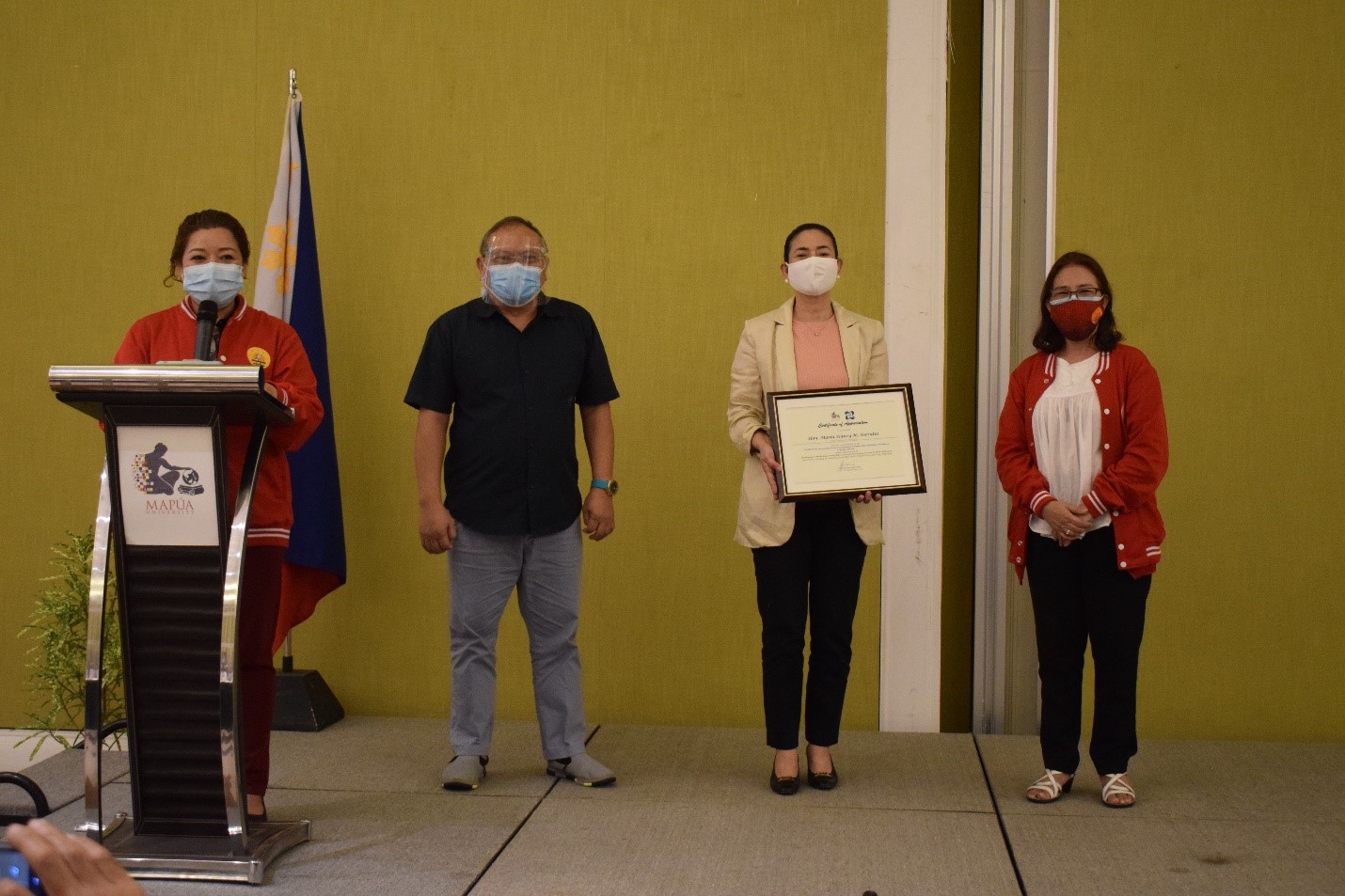
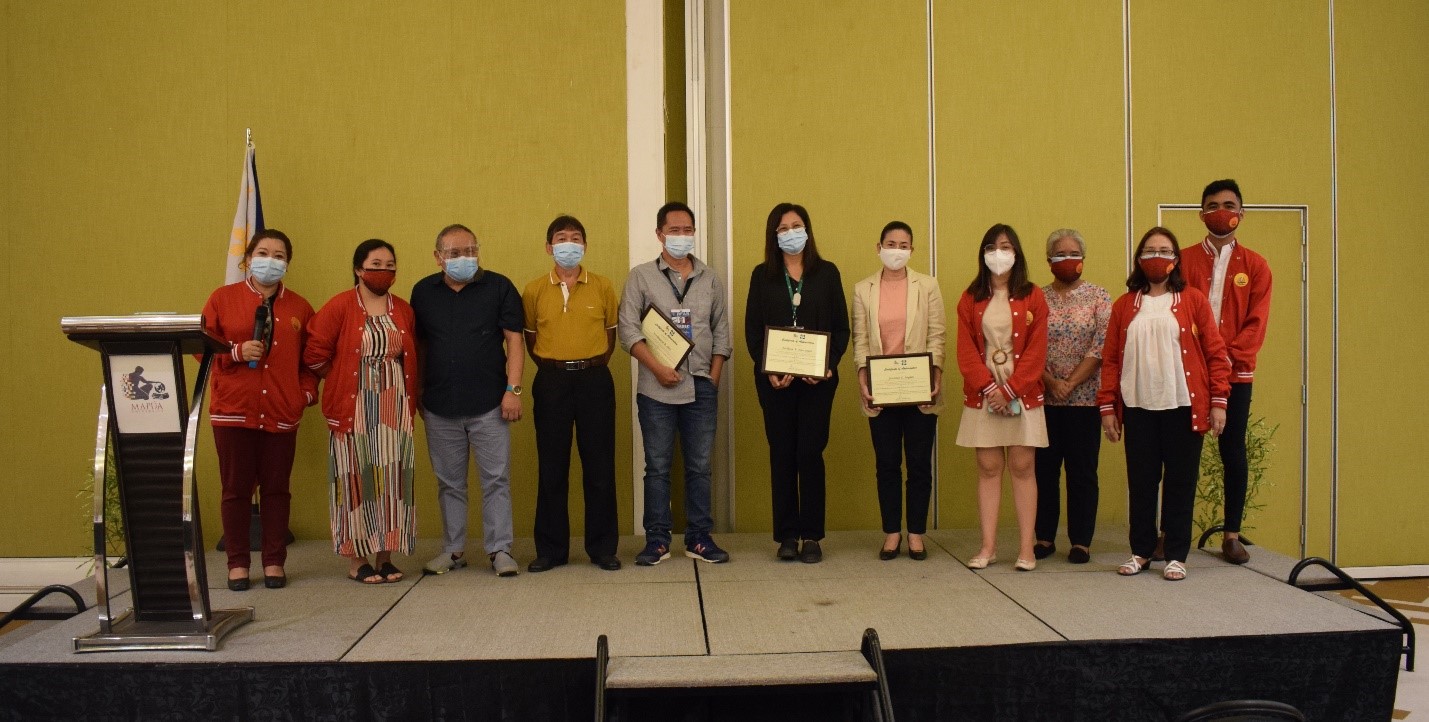
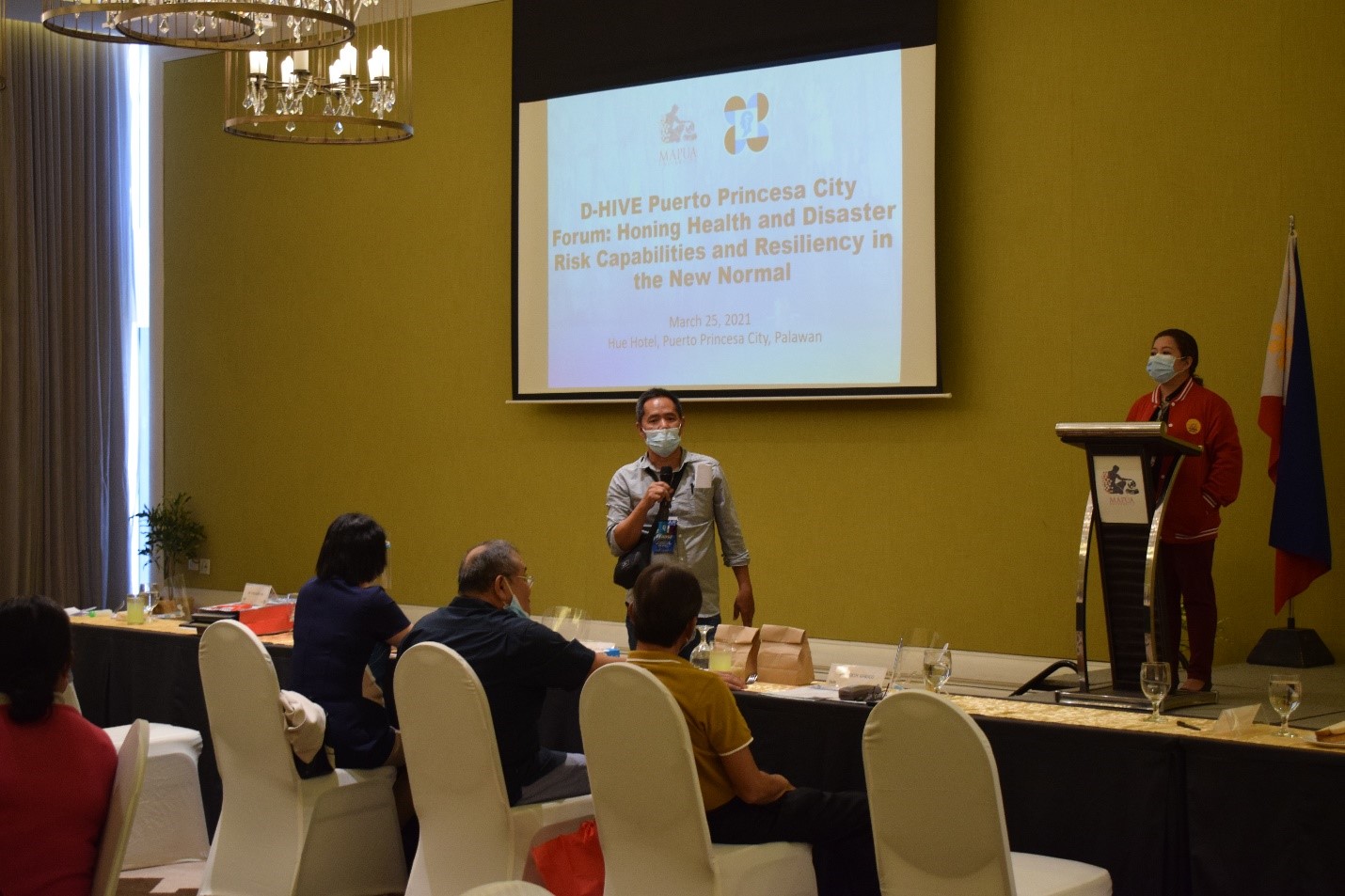
Romblon, Romblon
D-HIVE Romblon Forum: Honing Health and Disaster Risk Capabilities and Resiliency in the New Normal held last Mar. 3, 2021 at Romblon State University, Romblon Campus Covered Court.
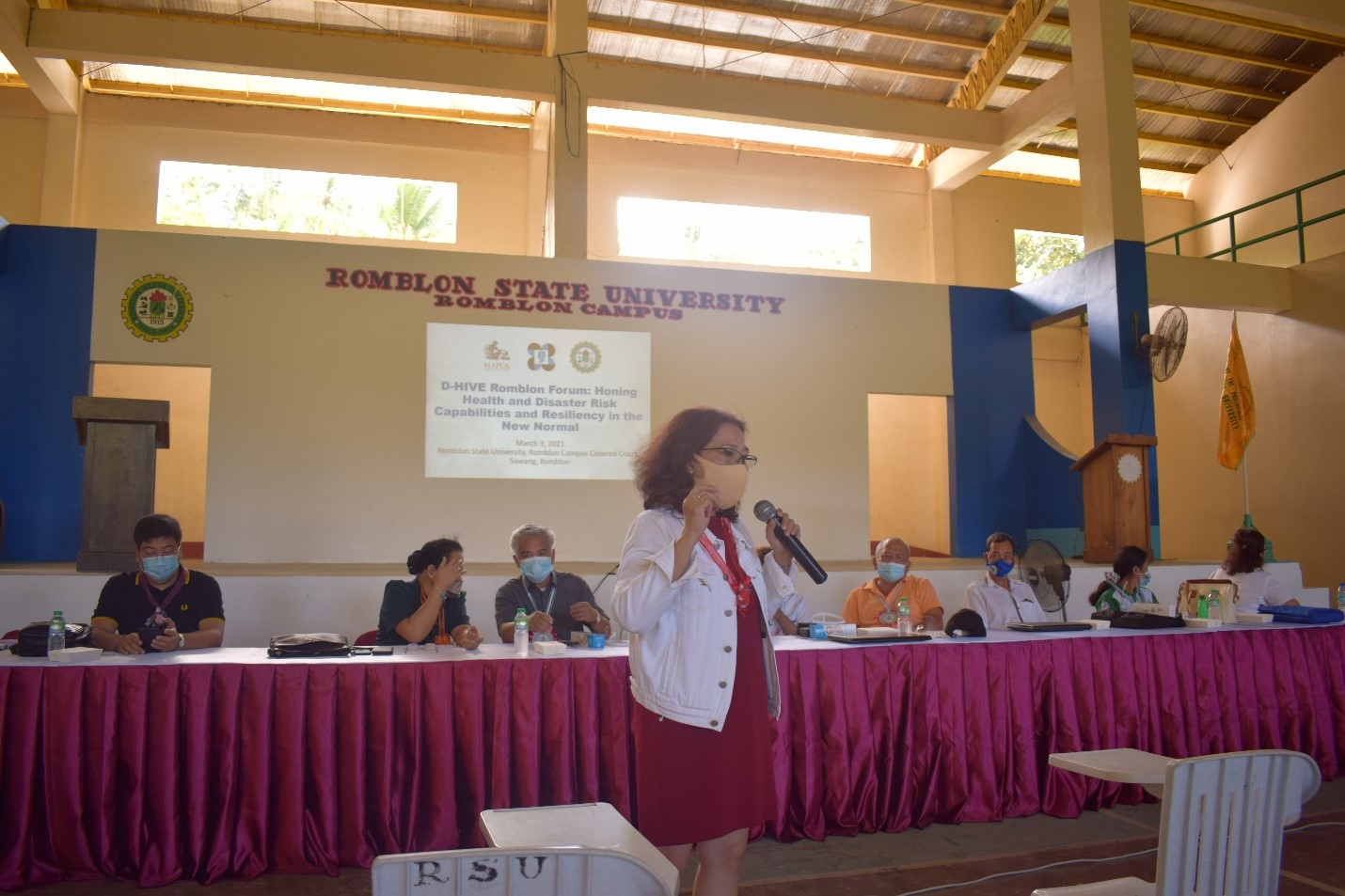
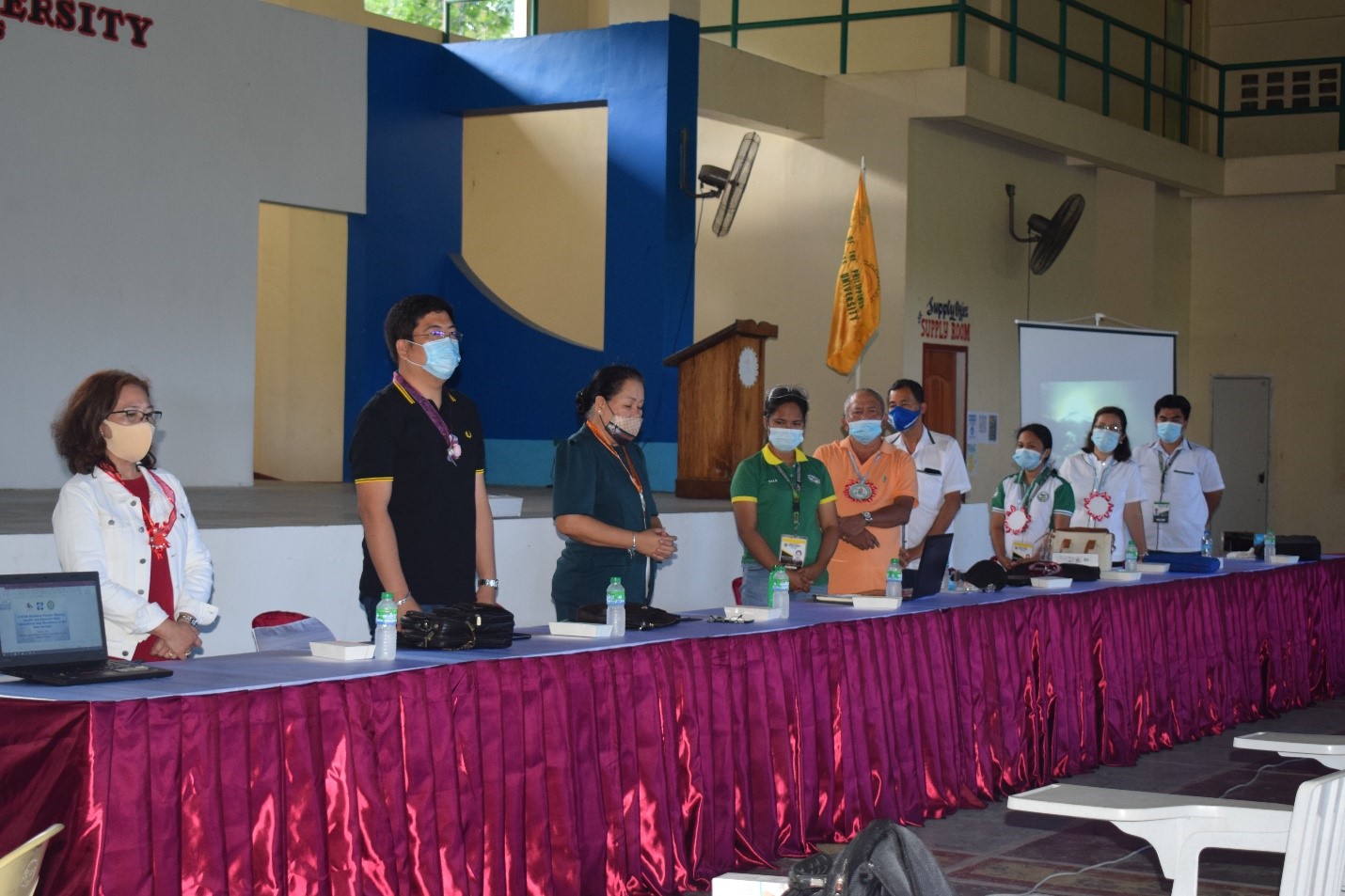
San Jose, Occidental Mindoro
D-HIVE San Jose Forum: Honing Health and Disaster Risk Capabilities and Resiliency in the New Normal held last Feb. 16, 2021 at Occidental Mindoro State College Gymnasium, San Jose, Occidental Mindoro
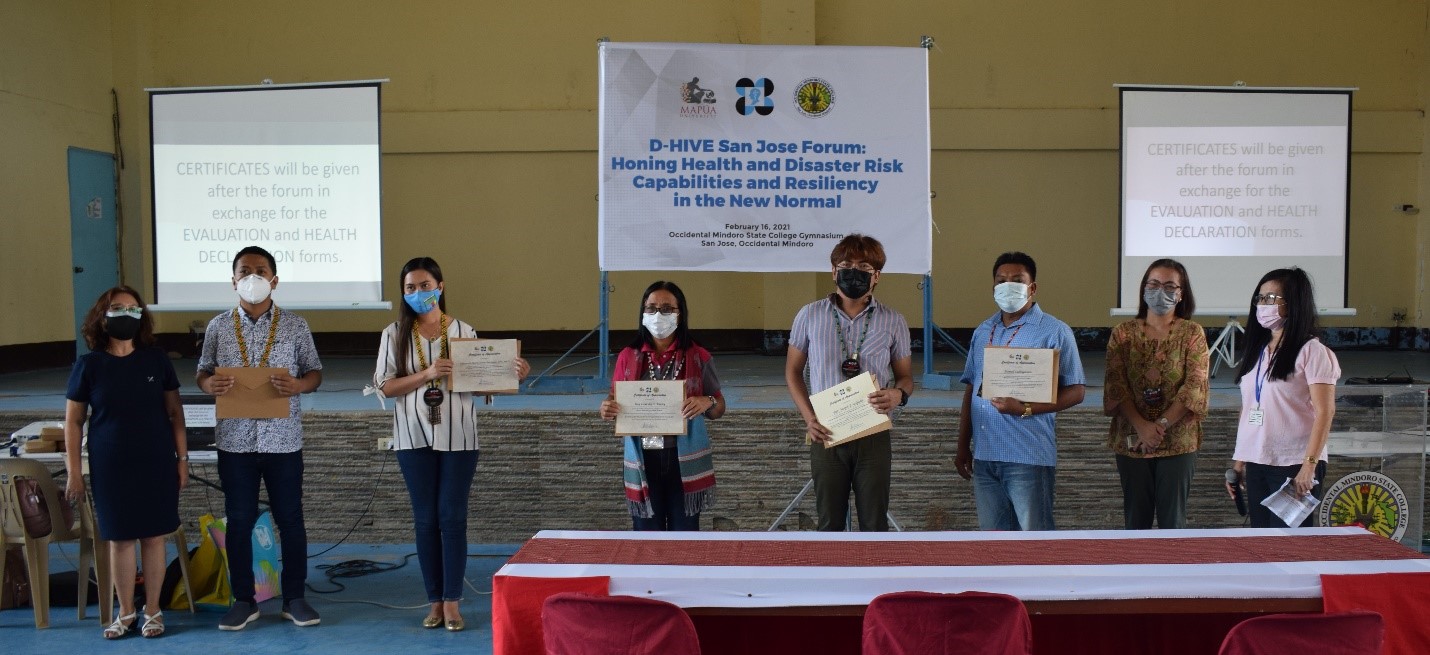
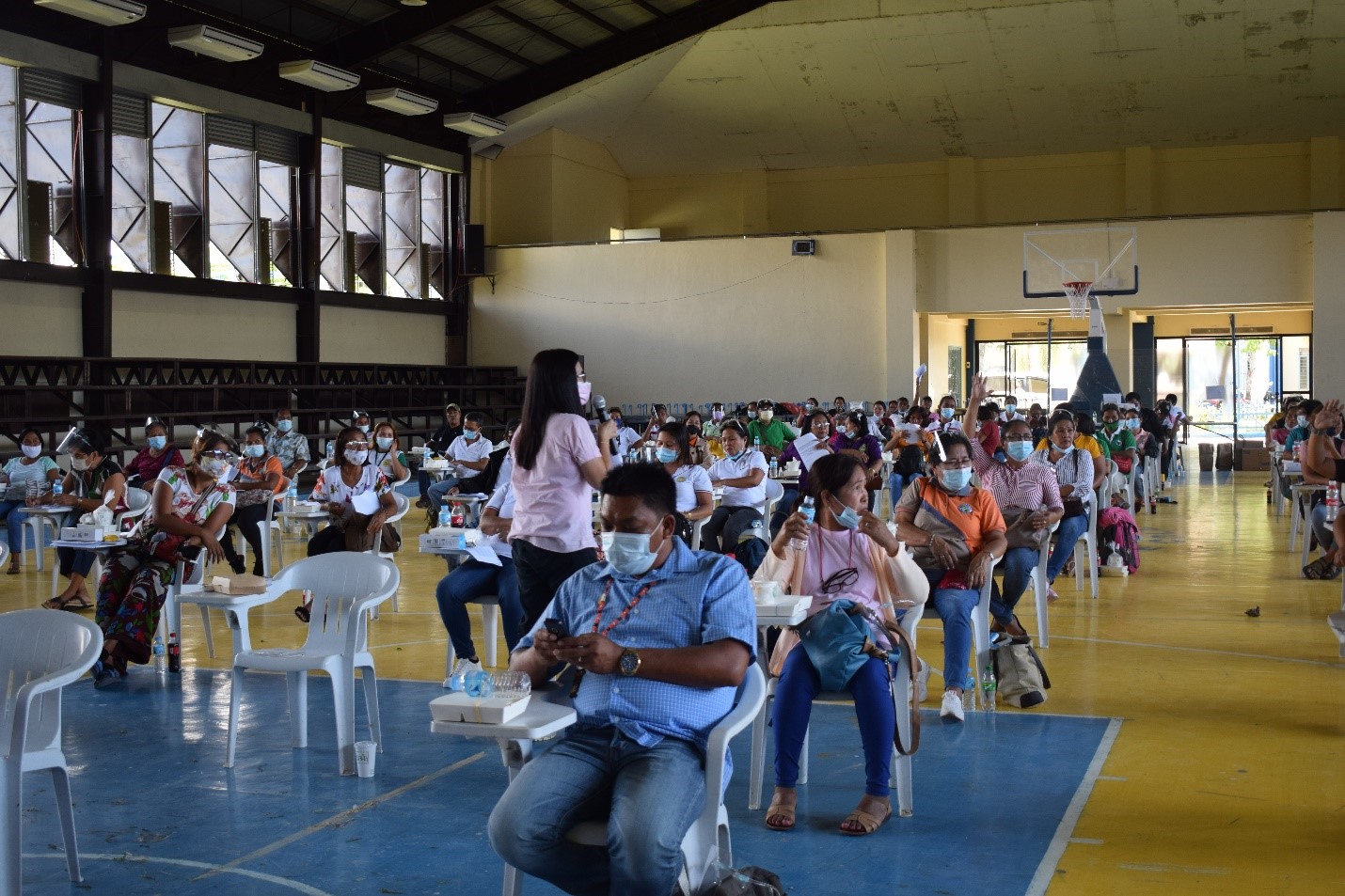
Calapan, Oriental Mindoro
Forum on Development of Health Index and Vulnerability Reduction System for Calapan on Feb. 11, 2021 at MinSCAT Calapan Activity Center, Calapan, Oriental Mindoro

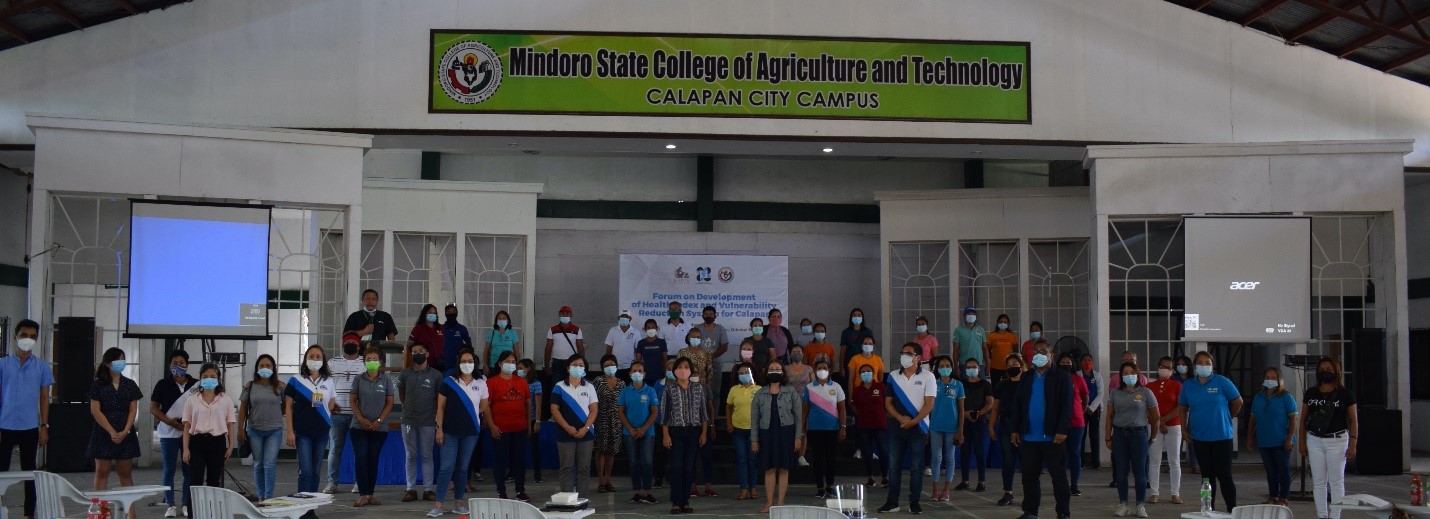
Activities in Marinduque Island Province
On September 17, 2020, Mapúa University launched the e-Salba system in Boac, Marinduque. This is a research output that was conceptualized and carried out by Mapúa University in partnership with Marinduque State College and in cooperation with the local government units and agencies of the island province of Marinduque. The eSalba System is a mobile and web-based application designed for disaster and health risks reduction. It is an early warning and communication tool for disaster preparedness of local communities. e-Salba was funded by the Department of Science and Technology–Philippine Council for Health Research and Development (DOST-PCHRD) and the Commission on Higher Education. Household vulnerability maps were also distributed to all barangays of Marinduque.
Following the successful public presentation of the e-Salba System was a series of trainings in six municipalities of Marinduque on September 22, 24, 25, and October 6, and 8, 2020. The trainings were conducted to enable the locals to fully utilize the e-Salba system.
https://www.mapua.edu.ph/Research/RSDC.aspx
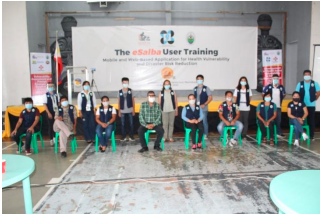
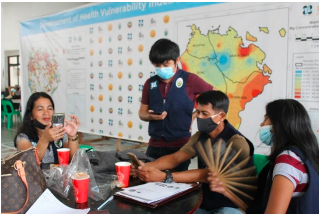
Mapua University organized the “Caring for Environment Quality and Public Health Risk Reduction” Seminar and execute the activity on June 7, 2019. Participants were about 250 composed of barangay chairmen, officers, municipal and provincial top management officers. Speakers from Municipal Disaster Risk Reduction Management Council, and Municipal Health Office discussed about their existing programs in disaster risks reduction for Marinduque. Mayor Antonio L. Uy, Jr. of Sta. Cruz Municipality, and Provincial Health Officer Dr. Gerardo Caballes, the Municipal Health Officer of Gasan (Dr. Abigail VIllaruel), municipal disaster risk reduction officer of Boac (Ramonchito Larga), Buenavista (Melvin Vitto) and Sta. Cruz (Wilvir Imperio), and among other officials of the various municipalities of Marinduque actively participated in the discussion. This activity, lead by Dr. Delia B. Senoro (front row, third from right) of Mapua University, was under the projects VAPERS (Vulnerability Assessment and Prompt Emergency Response System for LGUs Disaster Reduction in the Philippines) and D-HIVE (Development of Health Index: Vulnerability to Extreme Environmental Events for Marinduque Island) funded by CHED and DOST-PCHRD, respectively.





